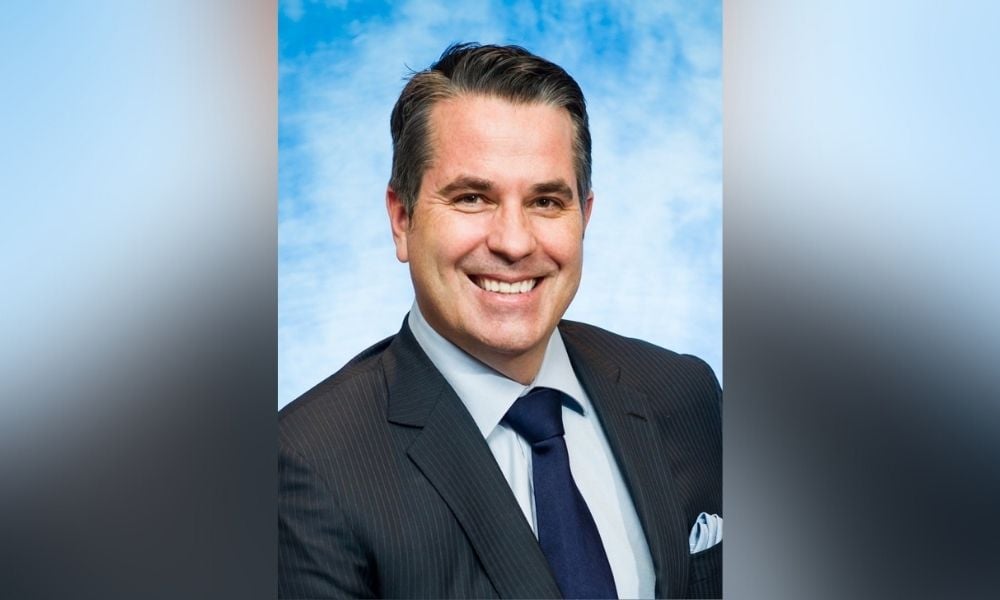Wealth Professional spoke to HomeEquity's Andrew Cairns about the timely topic of estate planning

This article was produced in partnership with HomeEquity Bank.
“I think,” says Andrew Cairns, National Lead of Wealth Management at HomeEquity Bank, “that there's an opportunity for reverse mortgages to put the whole landscape of estate planning on its ear.”
It certainly sounds like a bold claim – yet, as Cairns goes on to explain, there are all sorts of timely estate planning issues that he and the HomeEquity team are determined to rethink, revamp and refocus for a modern landscape.
Estate planning can no doubt be a sensitive topic – “everybody thinks about death … and that’s just the way the [estate planning] conversation can pivot” – but Cairns believes that the right approach can ensure both healthy financial wellbeing and peace of mind.
“We want to not just look at a person's situation when they pass,” he explains, “but actually bring some strategic planning [to the table] that's going to put individuals and couples in a better financial position using a broad array of tools.”
Couples, of course, are a particularly important area of focus. Much of estate planning is concentrated on the notion of preserving capital for the surviving spouse.
So – what’s the HomeEquity approach to this?
“Too often estate plans are focused on the individual and not the income needs of both spouses,” Cairns reflects. “And, increasingly, Canadians are relying on government benefits in order to make ends meet from an income standpoint. But an issue arises when one spouse passes [and] not the entire income suite remains. There's going to be a degree of reduction particularly in OAS.”
“That leaves a very significant income gap for a person during an emotional time who wants to remain in their house. So we take a very, very conservative approach to using a reverse mortgage. We're not talking about drawing large amounts of equity from the home, we're typically talking about modest amounts of equity from the home that will be extracted as a monthly advance from a reverse mortgage, for example $1,200 a month. That allows them to keep their spending intact but shifts the focus of where that money is coming from, as opposed to quickly depleting a nest egg of savings.”
But what about the wider family picture? In an age where the generational wealth gap is growing more profound, how can reverse mortgages benefit pre-inheritance or intergenerational wealth transfer?
“Many clients who approach us for reverse mortgages are looking for a solution to provide children with a living benefit, as opposed to waiting until death,” Cairns elaborates. “Reverse mortgages can provide accessibility for the entire family to participate in the housing market as a family unit, as opposed to having to wait for somebody to pass.”
“Keeping more investment assets around longer is a good thing. The next generation is often in crisis, or would benefit dramatically from equalization across the generations. And increasingly people are seeking the possibility to occupy mom and dad's property at some point in the future. Keeping a $1M+ home with an inherent appreciation potential of 3%-4% annually sees a growth of $30,000-$40,000 in wealth each year. Adding a reverse mortgage could tap into this, adding a new cash flow cushion for unforeseen costs. This also benefits the estate simply because an appreciating home can stay in the family as opposed to being sold.”
Foremost in all of this is what Cairns describes as “the emotional connection of real estate” – compounded by the fact that many ageing clients want to both plan for the future and enjoy the present.
To do this, the importance of remaining in their own home cannot be underestimated.
“There is great evidence for this. A September 2021 Campaign Research Inc. poll reveals that 96% of individuals over the age of 55 want to ‘age in place’,” Cairns says. “They simply don't want to move. There's enjoyment in the home.” This becomes even more potent when factoring in Statistics Canada’s recent Housing Survey Report, which reveals that 89% of seniors are ‘satisfied’ with their existing dwelling and 90% are equally happy with the neighbourhood they live in.
And that aforementioned emotional connection, Cairns explains, can also extend to charitable giving.
“We're finding that people enjoy participating in the charitable giving process as a living benefit,” he says. “Mom or Dad can actually stand across from a well-deserving student on the stage at school and personally deliver a bursary, for example, as opposed to waiting to gift the school money at some point after death.”
“The money that comes from a reverse mortgage is a tax-free event – so there is no taxable effect plus there is the potential to claim the charitable gift as a living benefit. And of course, any existing investment assets remain intact and continues to grow right along with the underlying real estate property. That is one of the more recent high net worth applications that we've seen reverse mortgages achieve.”
There’s a lot to consider – yet, when it boils down to the basics, Cairns believes that the success of HomeEquity’s approach relies on “service and credibility”.
“We have the in-field expertise to activate these concepts in partnership with advisors and in the context of a thoughtful and strategic financial plan,” he says. “We check all those boxes. We have been industry experts for over 35 years in the reverse mortgage market [and] we choose to be dedicated only to that space.”
More information about HomeEquity Bank’s CHIP Reverse Mortgage solutions can be found at CHIPAdvisor.ca/Wealth.
Andrew Cairns is the National Lead of Wealth Management at HomeEquity Bank, the only bank exclusively dedicated to providing HNW Canadian homeowners aged 55+ with smart, simple and strategic reverse mortgage cash flow solutions.



